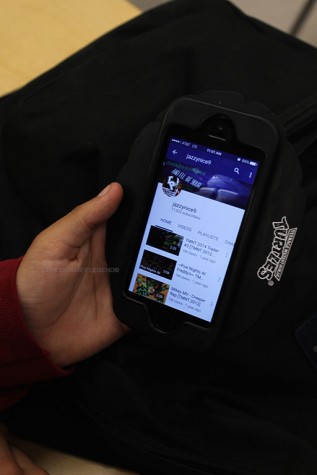Why Apple Should Unlock a Terrorist’s iPhone
March 4, 2016
After the devastating shooting that occurred in San Bernardino on Dec. 2, the FBI immediately began searching for clues as to what could have led to the attack, or any information the terrorists may have had for their next possible target. The FBI reported finding a locked iPhone 5C that could have belonged to Syed Rizwan Farook, the perpetrator who opened fire in San Bernardino with his wife, Tashfeen Malik. A federal judge went to Apple and asked them if they were able to help the FBI unlock the phone, but Apple CEO, Tim Cook, refused.
In the United States, you can go to any hacker and ask them to open an iPhone, but it is not as simple. The problem with unlocking new iPhones today is, if you enter the wrong passcode ten times, all of the data in the device will be wiped out. But it’s not necessarily for the best.
In this case, we are dealing with a terrorist’s iPhone, which can potentially be carrying a lot of information about another possible attack, and without the inside details, how will we know what they are planning in days to come? Then again, if the whole country gains knowledge to what the data reveals, will we feel safe, or will we feel threatened? My answer is that we will feel safer then than we are without the terrorist’s information.
This topic is complicated to discuss, for it is extremely controversial; especially when it comes to the safety of the U.S. along with other countries at risk. From my knowledge, Apple has a contract, promising privacy and security for anyone who owns an iPhone. This applies for everyone else in the country, according to the fourth Amendment of the U.S. Constitution: “The right of the people to be secure in their persons, houses, papers, and effects, against unreasonable searches and seizures, shall not be violated…” I think that the FBI should have the right to unlock Farook’s iPhone because it will not be very long until we hear about the next shooting.
So, I don’t see how leaving this information would be better off thrown away, because the government is more concerned about how citizens feel. How we feel about the terrorist’s data cannot be worse than the terrorists taking action upon our cities and our loved ones. Plus, this is a terrorist we are talking about, who in fact was a U.S. citizen, but a criminal.
Cook also stated that even if Apple did agree to help, they would still be unable to crack the code, because their products are built to only unlock if the correct passcode is entered. The judge’s order said that Apple could write software to avoid data being wiped, but Apple fears that the software might be used on any device. In my trig class, I heard that the other reason Apple is resenting to help unlock the phone is because if they violated somebody’s device, they’d also have to go through everyone (who owns an iPhone) else’s, and it’s a grand amount to handle.
It is difficult to choose, but I believe I will have to side with the FBI on this one. For the safety of our future generations, the government should have the right to get into a killer’s iPhone and find the information Farook has kept inside his device, no matter what appears when they finally open it up. We should be concerned about it, as citizens of the U.S., and we have the right to know what is going on in the world with terrorists and possibly prevent future wars.




